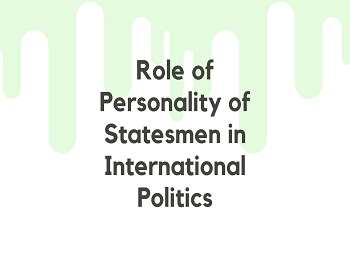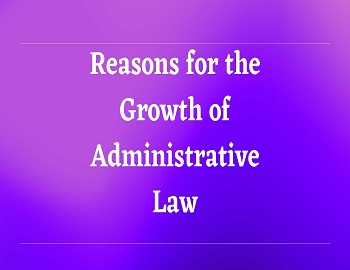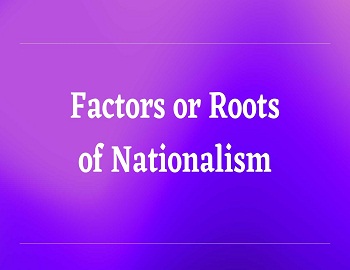Committed Bureaucracy:
A Committed Bureaucracy is one which is politicized or which is committed to upholding and enforcing the official political ideology of the ruling party or the elite or the ruler. When the public servants are aligned with a political party, psychologically or legally, and they are committed to judge all issues, alternatives, and policies on the basis of the ideology of that political party, we can safely conclude that there exists a Committed Bureaucracy in that country.
Defining the concept of a Committed Bureaucracy, O. P. Dwivedi and R. B. Jain observe, “The politicized or Committed Bureaucracy is one which is involved or influenced or is influenced to any degree, consciously or unconsciously, by overt or by implicit actions in the stream of politics of the day, whether of the party in power or of the party or parties in opposition. In a more extended form, it may also be regarded as a type of bureaucracy, which uses political parties in furtherance of their collective or individual objectives, or which is used by political parties for the achievement of party objectives.”
In other words, a Committed Bureaucracy is one which remains involved in, one way or the other, with party politics. It is used by a political party or parties for securing their objectives and goals in politics and administration. The bureaucracy also uses the political parties for the furtherance of its own interests.
A Committed Bureaucracy or Politicized Bureaucracy is a generic term often used to designate a bureaucracy having noticeable political links and commitments. The extent of the political commitment, however, can be minor or major or limited or extensive, and light or intense. Accordingly, certain categories of Committed Bureaucracy can be identified on the basis of the extent of politicization. Dwivedi and Jain identify four such categories:
- De-politicized Bureaucracy.
- Semi-politicized Bureaucracy.
- Committed Bureaucracy.
- Fully Politicized Bureaucracy.
A De-politicized Bureaucracy is neutral, anonymous, and apolitical. Such a bureaucracy keeps aloof from political activity. It maintains an attitude of impartiality and neutralism toward politics.
A Semi-politicized Bureaucracy is one which is committed to the programmes of the party in power. Public servants are allowed to become members of political parties and participate in their meetings.
A Committed Bureaucracy is one which is committed to the programmes of the party in power. Public servants are allowed to become members of political parties and participate in their meetings.
A Fully Politicized Bureaucracy exists in a single-party dominated authoritarian structured system of politics. The bureaucracy is the instrument of the ruling caucus. It is enormously powerful. It exercises power and authority for securing the needs of the party to which it is aligned and to which it owes all allegiance.
Politicization of Bureaucracy in Some States:
The politicization of public services has been achieved deliberately in one-party-ruled states of Asia and Africa and communist countries like China and Cuba. In the erstwhile socialist states of Eastern Europe and the erstwhile Soviet Union, the bureaucracies were Committed Bureaucracies and they were used by the ruling communist parties to achieve their end, goals and values. Even in many developing countries, a Committed Bureaucracy is justified largely on the ground that it is needed for securing national unity and development. Communist societies not only reject the concept of a Neutral Bureaucracy but also advocates strongly the need for a Committed Bureaucracy. They argue that neither a bureaucracy can be neutral nor it should be neutral. It is to be committed to believe, observe, defend, maintain, preserve uphold and implement the accepted values of the regime. They argue that neutral civil servants are merely instruments in the hands of the ruler, i.e., the capitalist exploiters who rule in the name of democracy.
In Canada, the belief that the freedom to participate in politics perpetuates the spoil system gave strength to the concept of a neutral bureaucracy. The public servants were, therefore, legally debarred from engaging themselves in any political activity or party politics. In Britain, from 1780 to 1930, several administrative reforms were introduced. With the emergence of the age of democracy, as symbolized in the passing of the Reforms Act of 1832, the trend towards the securing of a bureaucracy free from partisan spirit started gaining ground. Ultimately, the concept of a neutral bureaucracy came to be recognized as a silent feature of British Public Administration.
In the United States of America, during the days when the spoil system was at work, the bureaucracy continued to be politicized. Afterward, when the scope of the Spoils System became very limited, and it came to be virtually replaced by the Merit System, the concept of a neutral bureaucracy started gaining ground. Nowadays, bureaucratic neutrality stands recognized as a standard practice. Civil servants in the USA have been prohibited from taking part in partisan politics. Nevertheless, there continue to be present several limitations. As A. J. Lukas has observed, “Although the Hatch Act prohibits federal civil service employees from taking part in partisan political efforts, all the (American) Presidents have tried to make the bureaucrats march to their political tunes. In particular, President Nixon’s effort was unusual both in its scope and in the fierce determination with which it was enforced.
In fact, in a democratic polity, civil servants, as citizens, have to participate in politics, atleast as voters. As such, they cannot remain totally immune to politics. However, their code of conduct requires them to remain neutral and impartial, and no civil servant can become a member of a political party. The Neutrality of the Bureaucracy is regarded as a value. Nevertheless, no member of the bureaucracy is totally free from some kind of politicization. Very often, one finds civil servants resigning from their jobs for contesting elections. After their retirement, many of them join political parties of their choice. All this reflects that civil servants have their political viewpoints and orientations. Nevertheless, they are expected to maintain a level of neutrality during their tenure as civil servants. They stand legally prohibited from joining any political party during their tenure. As such, the political neutrality of civil servants stands accepted as a respected value. It also means a general rejection of the concept of a politicized or committed bureaucracy.









Comments (No)